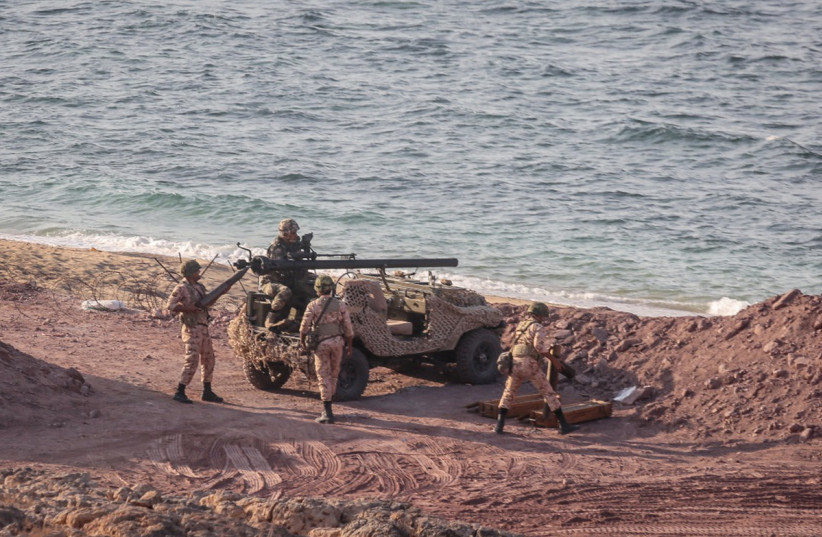It seems like a bit of a foolish question.
What could Israel probably gain out of a deal between the US and Iran that includes delisting the Islamic Revolutionary Guard Corps from America’s list of terrorists?
From Israel’s perspective, the move seems to be an unmitigated disaster.
It will lead to a huge new influx of funds for the ayatollahs to pay Hezbollah in Lebanon, Hamas and Islamic Jihad in Gaza, the Houthis in Yemen and various groups in Syria and Iraq to target Israel and otherwise promote terrorism and chaos.
And yet the writing was on the wall.

The move should not be a surprise to anyone who has followed how long it took for the Trump administration to list the IRGC as a terrorist group and where the US has been going regarding lifting sanctions during the Biden administration.
Even if it might be one of the most infuriating aspects of the emerging deal for Israel, it also is nowhere near one of the deal’s most problematic points in terms of sanctions.
In short, the Trump administration did not declare the IRGC a terrorist group for more than half of its term in April 2019 (almost a full year after pulling out of the Iran deal), and Israel’s biggest issue with lifting sanctions will be allowing Iran to sell its oil globally without limits.
Reframing the original question as “In light of a deal and move Israel opposes, can any silver linings be found?” the answer could be yes in two areas.
One area is very unlikely, but Israel should still ask for it: a commitment from Iran that if the IRGC is delisted that there will be certain military moves that neither it nor its proxies will take against Israel.
This would not mean ending its hatred of Israel or stopping sending arms to Hamas or the end of low-grade Gaza border riots. But there could be understandings about refraining from smuggling certain game-changing weapons to Lebanon and Syria, firing on Jerusalem and Tel Aviv, certain kinds of drone strikes on Israel or any significant military incursion by Hezbollah or Syrian proxies in the North.
The US could even say that if the Islamic Republic undertook any of these activities, it would automatically re-sanction it.
From a strategic perspective, Jerusalem should be asking for this, though unfortunately the likelihood of Washington obtaining such a concession from Tehran is practically zero.
However, the second area is only dependent on US President Joe Biden and could be crucial for Israel.
A side understanding between Jerusalem and Washington explicitly gives Israel a green light in a range of overt and covert military areas in Lebanon, Syria and even Iran itself to respond to certain IRGC and other provocations.
One of the direst concerns Israel has from the potential deal is that it will lead the US to lean harder on Israel not to undertake preemptive military or other actions to deter Iranian and other adversaries’ from future conflict.
In other words, Israel fears Washington will want to limit self-defense to only hitting back after already being hit.
Such a military strategic concept has been disqualified by basically every Israeli government because of Israel’s tiny borders and the close proximity and multiplicity of serious threats from its neighbors.
With all of his talk of being tough on Iran, former prime minister Benjamin Netanyahu did not start ordering the Mossad and the IDF, according to foreign sources, to undertake major sabotage and assassination operations against the ayatollahs itself until the summer of 2020.
So even Netanyahu was deterred by US and related pressures from striking the head of the octopus of terrorism.
If Israel has clarity and even quiet backing from Biden for the more proactive self-defense it has been engaged in since summer 2020, it would go a long way in addressing some of the country’s deepest concerns about the new JCPOA and the delisting of the IRGC.
